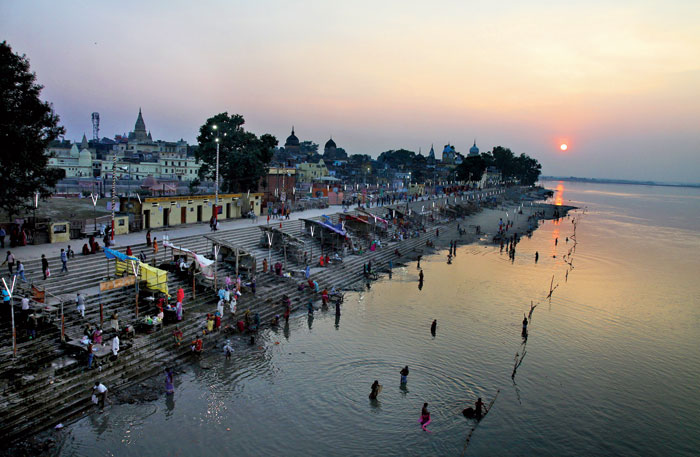The Supreme Court verdict in favour of a Ram temple in Ayodhya does in no way close the 27-year-old case to fix culpability for the Babri Masjid demolition, which Saturday’s judgment described as a “wrong committed (that) must be remedied”.
The special CBI court in Lucknow that is hearing the demolition case against a string of high-profile accused from the Sangh parivar was recently nudged by the apex court to conclude the case by April next year.
Altogether 49 parivar members were charged with conspiracy in the December 6, 1992, demolition, among them former Union ministers L.K. Advani, Murli Manohar Joshi and Uma Bharati, former chief minister Kalyan Singh and Bajrang Dal head Vinay Katiyar.
Eleven of the accused, including Shiv Sena patriarch Bal Thackeray and VHP leaders Ashok Singhal, Giriraj Kishore and Mahant Avaidyanath, are dead. The rest are on bail. Over two dozen witnesses are yet to testify in the court.
Saturday’s apex court judgment said the demolition should not have happened “in a secular nation committed to the rule of law”.
“The Muslims were dispossessed upon the desecration of the mosque on 22/23 December 1949 which was ultimately destroyed on 6 December 1992,” it said.
“This court in the exercise of its powers under Article 142 of the Constitution must ensure that a wrong committed must be remedied. Justice would not prevail if the court were to overlook the entitlement of the Muslims who have been deprived of the structure of the mosque through means which should not have been employed in a secular nation committed to the rule of law.”
It added: “The Constitution postulates the equality of all faiths. Tolerance and mutual co-existence nourish the secular commitment of our nation and its people.”
Initially, two demolition cases were filed --- the conspiracy case against the parivar stalwarts in a Rae Bareli court and a case for the actual vandalism against unnamed kar sevaks. In 2017, the apex court transferred the Rae Bareli case to the Lucknow court and merged the two cases. None of the unnamed kar sevaks has been identified or arrested.
The CBI had filed two chargesheets in the case, in 1993 and 2017. The parivar leaders were charged under penal code Sections 153A (promoting enmity between religious groups), 153B (making assertions prejudicial to national integration), 295 (defiling a place of worship) and 120B (criminal conspiracy).
Joshi, one of the key accused, has welcomed Saturday’s verdict. “The Supreme Court has accepted the claim of the people who have believed since centuries ago that Lord Ram was born in Ayodhya,” he said. “I was closely associated with the matter as I was the national president of the BJP when the masjid was brought down.”
Ram Vilas Vedanti, former BJP lawmaker and another accused in the demolition case, said on Saturday: “I had asked my followers to demolish the Babri Majid.”
Kalyan was chief minister of Uttar Pradesh when the Babri Masjid was demolished after he had assured the Supreme Court that the mosque would be protected.
He had for a while enjoyed immunity from trial in his capacity as governor of Rajasthan between September 3, 2014, and September 8, 2019. He rejoined the BJP on September 9 this year, and received the court summons on September 22.
On September 27, he became the last BJP leader to appear before the CBI court so far and was granted bail against a personal bond of Rs 2 lakh.
“Demolition of the structure was not a conspiracy but the result of the suppressed religious faith of crores of people,” he was quoted as saying in the CBI court.










